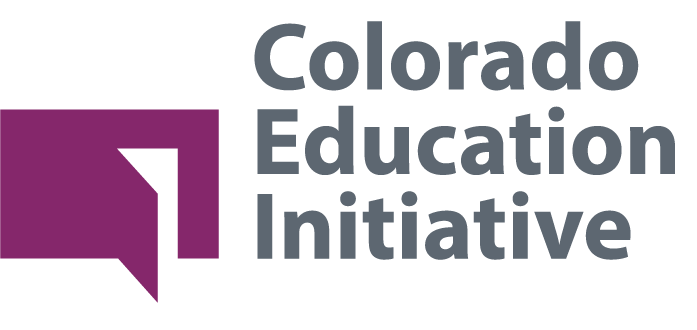
Black, Latinx, and low income families, students, and educators have been disproportionately impacted by the COVID-19 pandemic in the Untitled States along with those that are or have essential workers in their families. Schools and districts can help respond to these needs by focusing on supporting members of their community that have been more profoundly impacted by the challenges associated with this unprecedented time.
To do this, schools must prioritize identifying inequities in their systems and actively working to address them upon returning to school.

Ask hard but critical questions about privilege, benefit, isolation, unsupported struggle, and disproportionate burden in your system and aggressively address them.
Be equity detectives:
- Were there particular roles or particular educators who were unfairly stretched last spring?
- Were there adults in your system who were not supported as well as others—perhaps counselors or special ed/exceptional student services staff?
- Perhaps teachers at a particular level or who teach a particular subject area?
- Were there adults in your system who had unfair or unreasonable expectations? Perhaps educators with small children at home or taking care of aging/high risk adults in their home?
- Did you check in with your educators of color, gender diverse or LGBT educators, new educators in the district, and young teachers new to the profession or educators in new roles to see if they were feeling isolated, marginalized, overwhelmed, or unheard?

Create structures to address the inequities you uncover.

Create structures for smaller groups of adults to be in supportive community with each other.

Widen the circle of people inside and outside your district who can offer support.

Greeley-Evans School District 6
Greeley is striving to develop an equity plan that can be measured individually by schools throughout the school year, with target audiences of equity teams and students. Two weeks before school begins, a designated equity team in each school will be expected to create “Equity Statements” and a “Personal Racial Equity Purpose (PREP).” Teams will engage with multiple readings, videos, and other resources of race and equity. They will be supported to make connections between the material learned and how it impacts their students. A survey on these topics will also be created, ideally by the school-based mental health team, that is unique to each school and engages both students and the general community.
Ask hard but critical questions about privilege, benefit, isolation, unsupported struggle, and disproportionate burden in your system and aggressively address them.
Be equity detectives:
- Who were the students in your system who were not supported as well as others—why?
- Were there students in your system who experienced unfair or unreasonable expectations?
- Did you check in specifically with your students of color, gender nonconforming or LGBT students, students with IEPs & 504s, students new to your community, and students new to your school (e.g., 6th graders or 9th graders) to see if they were feeling isolated, marginalized, overwhelmed, or unheard?

Address the inequities you uncover!

Create structures for groups of students with shared identities and less power to be in supportive community with each other.

Widen the circle of people inside and outside your district who can offer support.

Clear Creek School District Re-1
Clear Creek School District has identified student mental health support as an integral goal area to focus on as they prepare for re-entry to the 2020-21 school year. Clear Creek will develop parent/guardian/teach school conferences during the initial two weeks of the Fall semester and also put together mentorships and book buddy programs for student participation. District mental health staff are also being mobilized to assist students (including those not on IEPs/504s) with adjusting to the new normal and discuss ‘fears, emotions, and traumas that may have been less prevalent in prior school years.’ Clear Creek will focus on welcoming back students into an atmosphere that is warm, inviting, and makes students feel heard. They will continue to provide mental health services alongside their SEL curriculum and learning opportunities, while also focusing on student leadership roles and opportunities.
Ask hard but critical questions about privilege, benefit, isolation, unsupported struggle, and disproportionate burden in your system and aggressively address them.
Be equity detectives:
- Who were the families in your system who were not supported as well as others—why?
- Were there families in your community who experienced unfair or unreasonable expectations?
- Did you check in specifically with your families of color, gender nonconforming or LGBT families, families who have students with IEPs & 504s, families new to your community, and families new to your school to see if they were feeling isolated, marginalized, overwhelmed, or unheard?

Address the inequities you uncover!

Colorado Springs District 11
D11 recognizes the importance of pursuing active communication with families as they re-enter the school year. They will pursue communication through multiple forms, such as email, mail, phone, and virtual home visits. They will focus on potentially marginalized families who historically have not communicated with their respective school. They will engage in conversations with a tiered system depending on student/family needs. Additionally, they will transform back-to-school night into listening spaces where teachers and staff learn from families about how they can best serve each student. Families will be personally invited to this event prior to school starting, with an emphasis on the new format of back-to-school night and how it will turn into a collaborative space.
How to Reopen Schools: A 10-Point Plan Putting Equity at the Center
GettingSmart.com
When SEL is Used as Another Form of Policing
Communities for Just Schools Fund
Guidance on Culturally Responsive School Reopenings
NYU Metropolitan Center For Research On Equity and The Transformation of Schools
How to Develop Culturally Responsive Teaching for Distance Learning
MindShift
5 Essential Trauma-Informed Priorities for Remote Learning
ACSD InService
Trauma Informed School Strategies During COVID-19
The National Child Traumatic Stress Network
Helping Families Cope With the Coronavirus Disease 2019
The National Child Traumatic Stress Network
Low-Income Schools See Big Benefits in Teaching Mindfulness
MindShift

